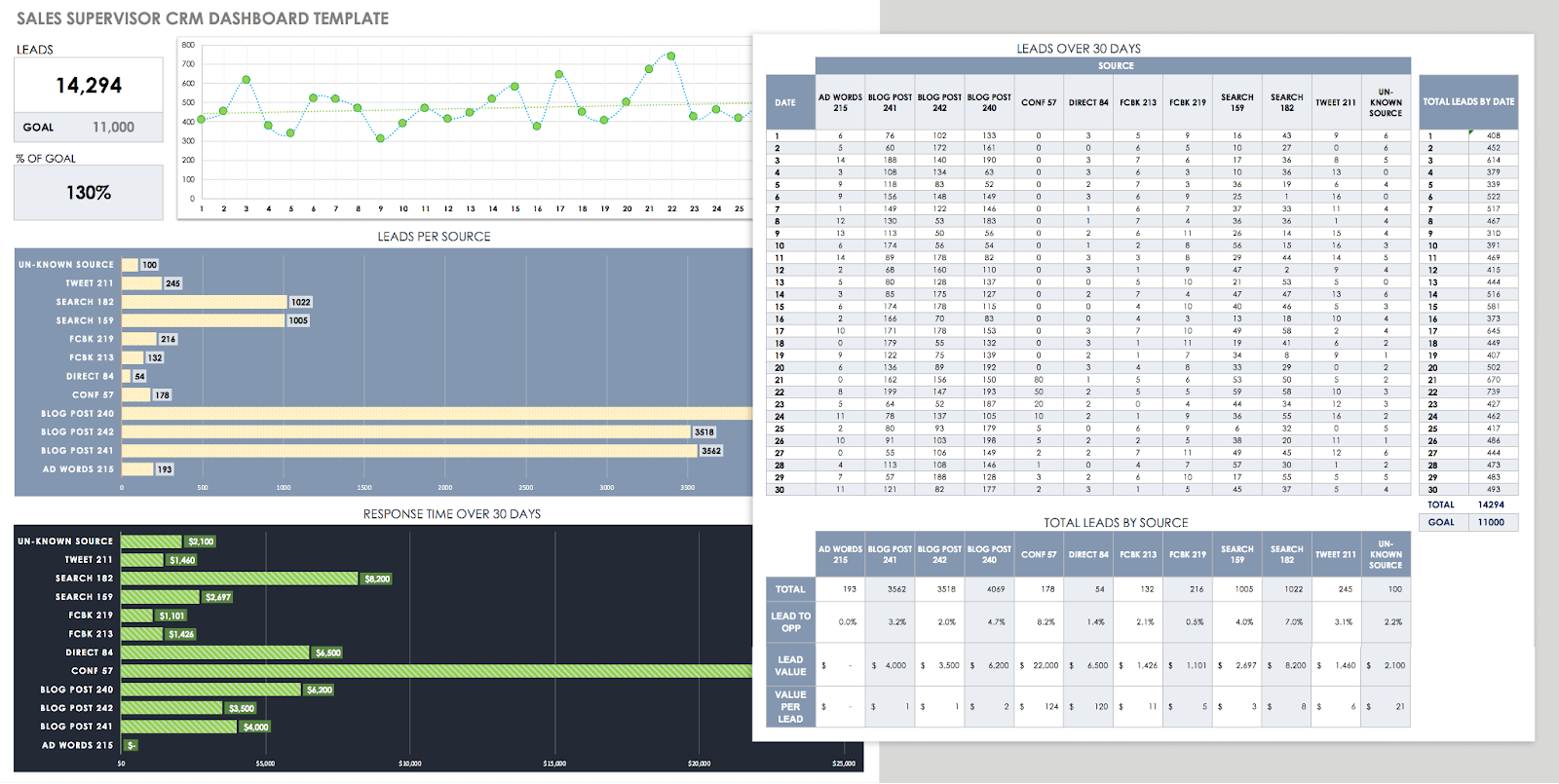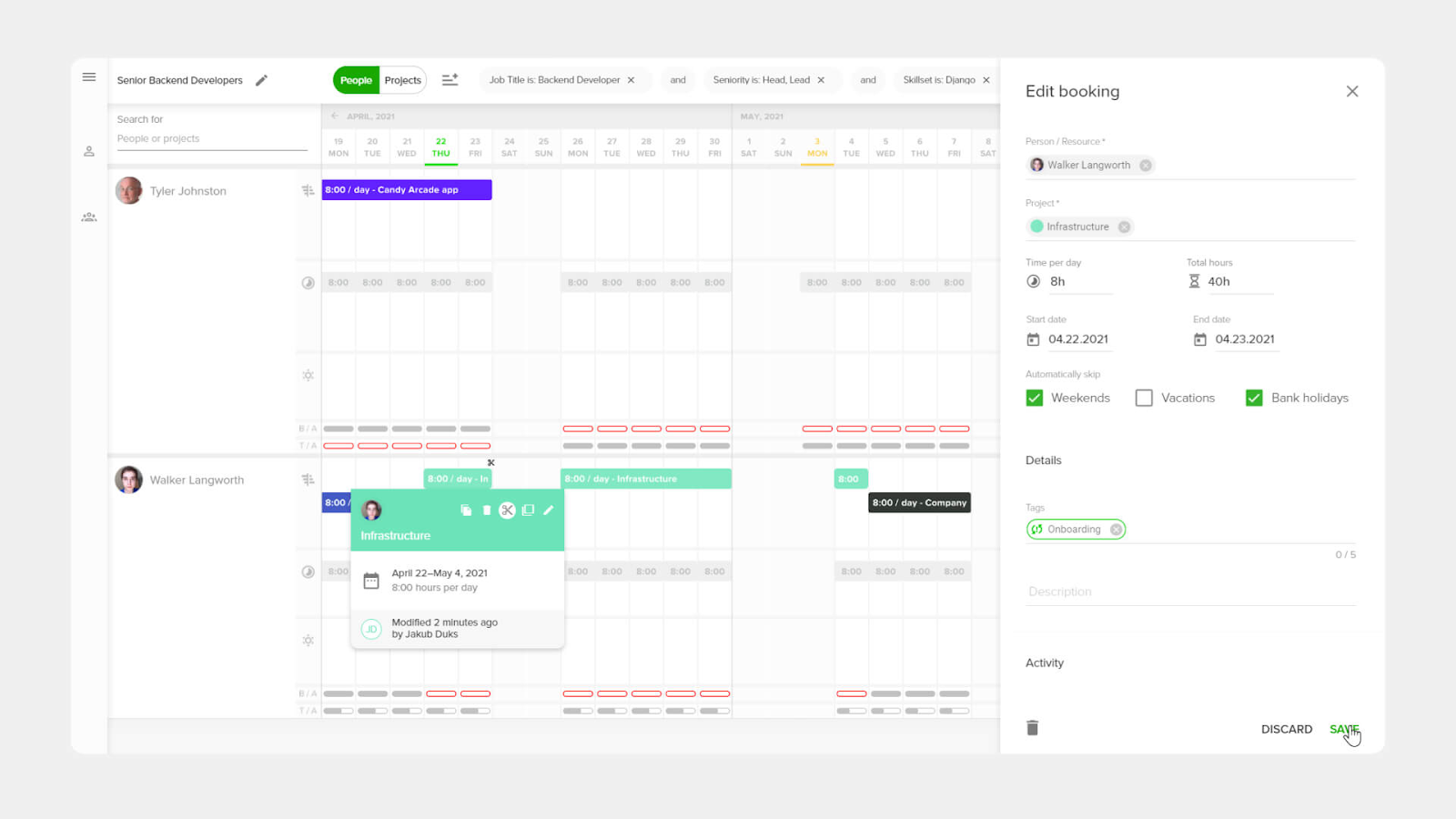Capacity Planning is an essential component of project management, encompassing effective workload management, resource allocation, and project scheduling. Its goal is to maximize resource utilization to efficiently meet project deliverables. This strategy involves identifying project needs, prioritizing tasks, and ensuring the team’s workload is manageable, thus maintaining high efficiency.
Why capacity planning is essential for agencies
For agencies, capacity planning is critical for proper resource allocation, workload management, and overall efficiency enhancement. This approach ensures project requirements are met without overburdening the team, aiding in effective project scheduling and task prioritization. Without it, agencies risk failing to meet deliverables, potentially harming their reputation.
Maximizing productivity
Maximizing productivity hinges on effective resource allocation, integral to capacity planning and workload management. These strategies ensure equitable task distribution, preventing burnout and boosting efficiency. Project management, including project scheduling and task prioritization, is key to meeting project requirements timely and ensuring optimal resource use.
Ensuring project success
Effective project management is vital for success, requiring careful planning and strategic resource allocation for optimal utilization. Capacity planning and workload management are crucial for aligning tasks with project deliverables and requirements. Capacity management is also essential, aiming to enhance team performance and meet project goals.
Improving resource allocation
Efficient resource allocation is a cornerstone of team capacity planning. It involves distributing and managing resources to meet project needs and maintain efficiency. Workload management aids in task prioritization, while project scheduling supports capacity management, ensuring resources are used optimally throughout the project.
How to manage your team's capacity?
Step 1: Sign up on Bonsai
Sign up for Bonsai using this link and complete the registration process. You will be asked to provide some basic information and it will only take a few minutes.
If you have an existing account, you can simply log in to your account then proceed to the next step.
Step 2: Invite your team members to Bonsai

Add your team members and assign them a role. You can choose among 3 different roles:
- Partners - they assist in managing the company but cannot access banking details or delete the company account
- Project Managers - they manage projects, tasks, time tracking and clients but cannot access financial data (invoices, revenue)
- Collaborators - they work on assigned projects and can manage tasks and track time. They cannot edit or delete projects, access client details or financial data
If you are the one who created the company account, you will have the Owner role and have access to everything.
Step 3: Set a daily capacity for team members

In your team settings, select a team member and set the available working hours for this member.
Step 4: Allocate work in the team planner
.png)
On the resource planner, you'll get a view of all your team's member capacity. You'll be able to schedule your team's work across project by selecting a date and a project and then, allocating either total hours (this will be automatically set if you defined a capacity for your team member) or choose specific time.
You can also log and factor time off for each team member.
With the resource planner, you'll see who's over or under capacity at a glance.
Step 5: Check the capacity forecast report
.png)
Once your schedule is in place, head to Reporting → Capacity Forecast to see a rolling, color-coded projection of workload and availability:
- Forward-looking demand curve – Visualizes booked vs. available hours by week or month for every person and the team as a whole.
- Tentative vs. confirmed work – Shaded overlays separate pencilled-in allocations from signed-off tasks, so you can gauge risk before committing.
- Skill-gap alerts – Filters highlight roles or skills that will run short, helping you decide whether to hire, cross-train, or reshuffle.
- Scenario snapshots – Adjust hours, shift start dates, or add placeholder projects and watch the chart update in real time—perfect for “what-if” staffing discussions.
Use this report as your single source of truth in weekly resourcing meetings: spot crunch weeks early, justify new hires with data, and keep every project on a realistic path from day one.
Key elements of effective capacity planning
Effective team capacity planning is a strategic endeavor, pivotal for optimal task distribution. It encompasses resource allocation, ensuring each project is adequately staffed, and project scheduling, which outlines task completion timelines.
Additionally, resource management and resource utilization are key to maintaining team efficiency, preventing overwork, and allowing for focused task prioritization on critical project deliverables. Understanding project requirements is the linchpin for resource planning and productivity maximization.
Understanding team skills and abilities
In the realm of project management, capacity planning and resource allocation are foundational for effective workload management. These practices ensure that team members are not overburdened, facilitating on-time achievement of project deliverables.
Precise project scheduling and meticulous task prioritization contribute to enhanced team efficiency. Resource planning is the art of identifying and allocating both human and non-human resources necessary for project fulfillment, with capacity management being the overarching goal to maximize team output and goal attainment.
Forecasting future workload
As we look ahead, our emphasis will be on capacity planning and workload management to anticipate future workloads. Leveraging advanced project management techniques, we’ll evaluate team workload, task prioritization, and project requirements to effectively plan our resources.
A focus on resource allocation will ensure our team is well-equipped to boost efficiency. Through optimized resource utilization, we’ll be poised to meet project deliverables punctually. Ultimately, capacity management will be crucial in our resource planning and project scheduling, enabling us to strategically manage our workload and elevate team efficiency.
Considering time constraints
Effective project management involves crucial factors such as resource allocation, workload management, and capacity planning. These strategies enhance project planning and scheduling, resulting in improved resource utilization and overall team efficiency.
Key elements to consider include:
- Task prioritization which aids in achieving project deliverables within set timelines.
- Resource planning is vital to ensure optimal allocation and utilization of resources.
- Moreover, capacity management plays a primary role in project requirements' fulfillment.
Strategies for successful capacity planning
Successful capacity planning largely depends on accurate resource allocation and effective workload management. Key strategies include clearly defining project requirements to understand the team workload and the necessary resource planning. This ensures optimal resource utilization and task prioritization, enhancing team efficiency.
Moreover, comprehensive project management involves diligent project planning and scheduling, ensuring timely delivery of project deliverables. Finally, capacity management is essential to identify any future constraints and adjust the resource management strategy accordingly.
Adopting Agile methodologies
Adopting Agile Methodologies can significantly enhance resource allocation and project management. This approach offers greater flexibility in workload management, facilitating more efficient team workload distribution. First and foremost, Agile enables dynamic task prioritization, thereby increasing team efficiency.
Key features include:
- capacity management to accurately plan capacity
- project scheduling to meet project deliverables on time
- resource planning and management to optimize resource utilization
By integrating Agile methodologies, teams can better respond to project requirements changes, ensuring successful project completion while maximizing resources.
Implementing cross-training
The process of implementing cross-training requires strategic capacity planning to ensure effective workload management. This involves careful project planning to ensure the appropriate resource allocation to meet project deliverables and requirements. It is an aspect of capacity management that aims to significantly increase team efficiency.
Key activities involved in cross-training comprise the following:
- Project scheduling to ensure training doesn't disrupt project timelines.
- Resource planning to determine how personnel shifts may affect resource utilization.
- Task prioritization to ensure that crucial tasks are attended to first despite the ongoing training.
This approach not only nurtures skills within the team, but also cultivates a strong backup plan for resource management in the case of unexpected personnel changes.
Creating a buffer for unexpected changes
Imperative for effective project management, a buffer for unexpected changes can aid in workload management and resource allocation. This strategic plan can highly enhance team efficiency and project scheduling and thus, is a crucial stage in resource planning.
To cope with uncertainties, it is vital in:
- Capacity planning to accommodate for any sudden changes in the project requirements
- Project deliverables as a safety net for any potential missteps in the process
- Improving overall resource utilization and task prioritization.
This padding consequently ensures a more seamless and stress-free execution of tasks.
Top 3 Challenges in capacity planning
Capacity planning presents challenges such as workload management, resource allocation, and project scheduling. Balancing team workload while ensuring project requirements are met on time can be complex.
Proper resource allocation is critical, as both under and over-allocation can lead to inefficiencies. Project scheduling faces uncertainties in resource utilization and task prioritization, affecting team efficiency and capacity management. Strategic resource planning is key to overcoming these challenges.
1. Managing remote teams
Managing remote teams involves capacity planning, workload management, and resource allocation. Capacity management determines the number and type of projects a team can handle.
Effective workload management ensures a balanced team workload, increasing efficiency, while proper resource allocation contributes to optimal utilization. Project planning, scheduling, task prioritization, and managing deliverables are all part of project management, which supports efficient resource planning and successful project completion.
2. Dealing with fluctuating workloads
Dealing with fluctuating workloads requires effective workload management and resource allocation, involving task prioritization and capacity planning to enhance efficiency. Project management methods are crucial when workload fluctuations occur, guiding project scheduling and resource management to ensure deliverables are met. Strategic resource planning maximizes resource utilization, ensuring fluctuating workloads are managed effectively.
3. Overcoming communication barriers
Overcoming communication barriers is crucial in project management. Effective capacity planning, workload management, and resource allocation ensure a clear understanding of goals and tasks. Transparent communication reduces misunderstandings, promotes efficiency, and ensures smooth execution of processes.
Key practices to consider include:
- Clear guidelines for project deliverables and requirements.
- Frequent updates on project scheduling.
- Consistent check on resource utilization and task prioritization.
Efficient resource management paves the way for successful project planning and assists in circumventing potential challenges.
Tools for effective capacity planning
In dealing with capacity planning, it's crucial to construct a well-defined strategy. A tool vital for this is capacity planning software, which assists in managing resource allocation effectively. It aids in eliminating oversights and increasing overall business efficiency.
Capacity planning tools are indispensable for successful project management, ensuring efficient workload management and optimal resource allocation. These tools empower leaders to accurately balance team workload, schedule projects effectively, and prioritize tasks for enhanced team efficiency.
They are key in ensuring that project deliverables and requirements are met punctually. Moreover, these tools support capacity management, improving resource planning and management by monitoring and analyzing resource utilization.
1. Bonsai: The best resource planning tool

Allocate work and optimize your team's time in a breeze with Bonsai. Manage team capacity, track your budget, tasks and hours and get insights on your business in one place.
- Plan your team's capacity: set daily capacity to each team member, schedule your team's work, log time off
- Monitor workload in real time: see who's over or under capacity in real time, prioritize and optimize your team's capacity
- Track utilization and efficiency: ensure healthy utilization across projects, see the full picture of your business's resourcing and forecast future projects

2. Microsoft Project: A comprehensive solution

Microsoft Project is a robust solution for project management, offering features like resource allocation, project scheduling, and workload management that contribute to improved team efficiency. It facilitates precise capacity planning and effective task prioritization, ensuring timely and efficient completion of project requirements.
Additional capabilities of Microsoft Project include capacity management, resource planning, and resource utilization, which help maintain a smooth team workload, manage project deliverables, and achieve a streamlined workflow for project success.
3. Smartsheet: Streamlining work management

Smartsheet is a versatile platform that streamlines work management, enhancing team efficiency and project planning. Ideal for resource allocation, it ensures that project deliverables align with project requirements.
Key features of Smartsheet include task prioritization and workload management, enabling efficient team capacity planning. Resource management is another vital aspect, allowing for better control over resource utilization and seamless project scheduling.
Overall, Smartsheet significantly contributes to capacity management, aiding in the smooth execution of projects and improving team workload.
4. Teamdeck: Balancing resources and demand

Teamdeck is an invaluable tool for project management, catering to capacity planning and workload management to align resources with demand meticulously. It fundamentally gears team efficiency by perfecting resource allocation, ensuring an optimized balance between supply and potential bandwidth.
Key features of Teamdeck include:
- Project planning and scheduling, aligning timelines to project requirements and deliverables.
- Capacity management and resource utilization, facilitating the right task prioritization.
- Resource planning and management, ensuring smooth team workload distribution.
Conclusion: The impact of capacity planning on agency success
Capacity planning is instrumental in an agency's success as it ensures efficient resource allocation and workload management. This methodology not only aids in project scheduling and resource planning, it eliminates overexertion of resources, facilitates task prioritization, and maximizes team efficiency.
As a subset of project management, capacity planning drives the agency towards the timely accomplishment of project deliverables within the project requirements. Therefore, integrating capacity management into agency practices would significantly elevate team workload handling and resource utilization for optimal performance.







